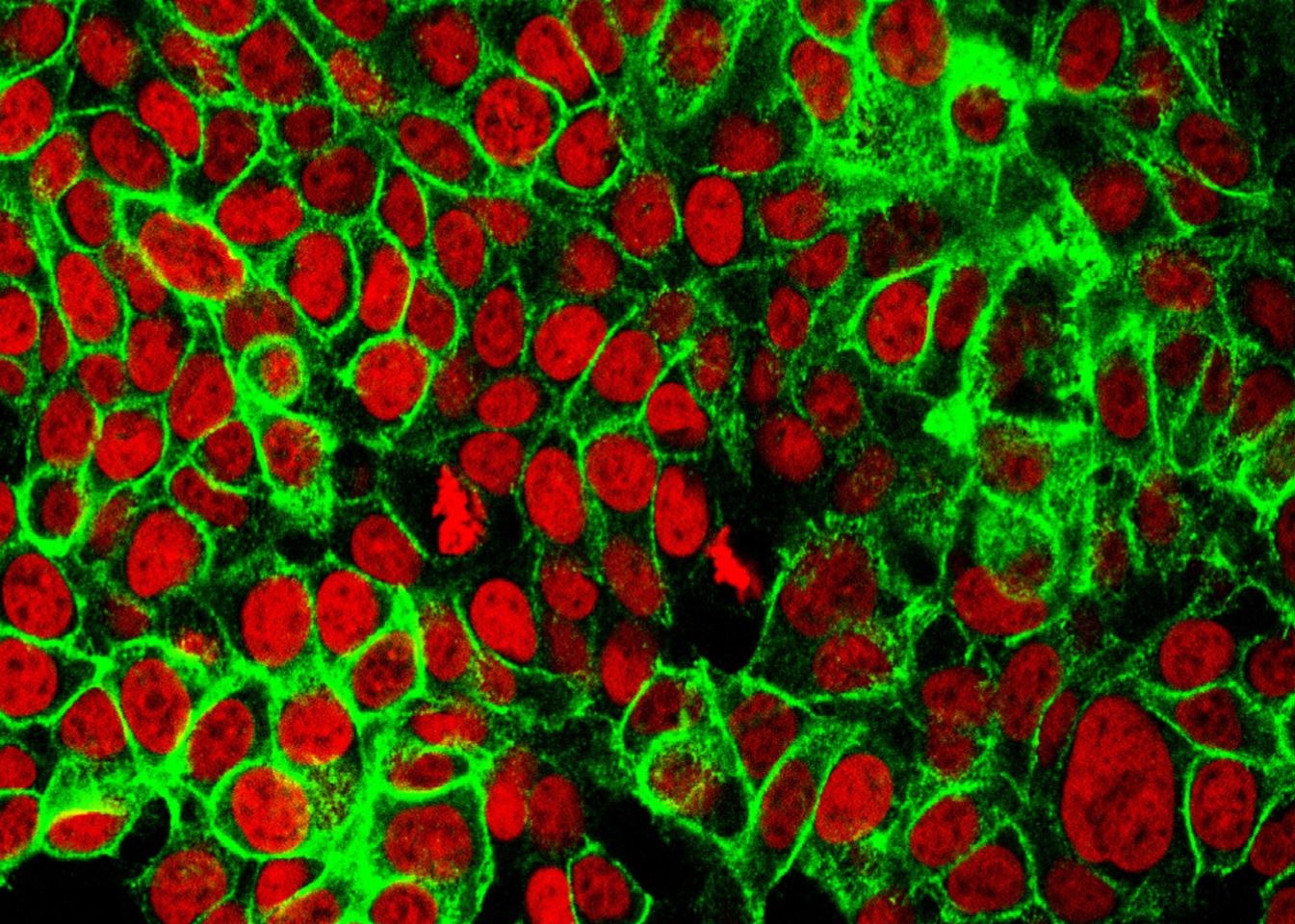
In a study of more than 500 people treated with standard therapy for advanced colorectal cancer, UNC Lineberger Comprehensive Cancer Center researchers and colleagues report that Black patients displayed a distinctly different pattern of gene mutations compared to white patients. This finding is possibly reflective of environmental exposures often seen in colorectal cancer that develops in people younger than age 50. Importantly, some of the mutations were associated with improved overall survival and could serve as predictive and prognostic markers for the disease.
The findings appeared in the Journal of Clinical Oncology.
Colorectal cancer is the third most common cancer and the second leading cause of cancer death in the United States. The American Cancer Society estimates that more than 152,800 new cases of colorectal cancer will be diagnosed in the U.S. in 2024, and the cancer will cause more than 53,000 deaths. Black Americans, compared to white Americans, are more likely to be diagnosed with – and die from – colorectal cancer, according to the National Cancer Institute.
In this new study, investigators examined outcomes from a large phase III randomized clinical trial, CALGB (Alliance)/SWOG 80405, to look at how two different chemotherapy drugs impacted mutations in 548 patients with metastatic colorectal cancer. The trial participants were randomly assigned to receive either bevacizumab or cetuximab, both targeted therapies, along with conventional chemotherapy or a combination of both targeted drugs plus conventional chemotherapy. The trial showed no advantage from any one of the three combinations. However, by performing tumor DNA sequencing of more than 400 genes, the researchers were able to focus on mutated genes associated with survival and differences in response to therapy.

“In our study, we sought to identify DNA mutations that were related to overall patient survival – a prognostic biomarker – or were associated with improved survival in one therapy more so than the other – a predictive biomarker,” said senior study author Naim U. Rashid, PhD, a UNC Lineberger member and associate professor of Biostatistics at Gillings School of Global Public Health. “We also sought to provide insights into racial differences in molecular features and clinical outcomes in patients with colorectal cancer.”
Rashid said analysis of tumor DNA alterations and their racial differences between Black and white patients can provide new tools to predict patient outcome, inform therapeutic decisions, and improve diversity in trial participation in patients with metastatic colorectal cancer.
The researchers found that mutations to the KRAS and APC genes were more frequent in Black patients (53% and 85%) than white patients (27% and 65%, respectively), while BRAF V600E mutations were less frequent in Black patients (5%) than white patients (14%). They also looked at overall patient survival and determined that a mutated LRP1B gene (found in 10.7% of patients) was associated with improved overall survival compared with patients who had a more common version of LRP1B.
They also determined that the RNF43 gene (found in 5.6% of patients) interacted with the drugs in different ways: in people who received cetuximab, patients with mutated RNF43 had a median overall survival of 11.5 months compared with 30.1 months in patients with a more common form of the gene. For those treated with bevacizumab, patients with mutated RNF43 had a median overall survival of 25.0 months compared with 31.3 months in patients with the more common form of the gene. The results as a whole provide valuable insight into which genes and treatments can benefit certain sets of patients with this advanced disease.
“Black Americans are routinely under-represented in clinical trials, and this case is no exception. However, to our knowledge, this is the first prospective trial to look at gene mutations using state-of-the-art gene sequencing in this population,” said Rashid. “We hope that these findings will help many patients and their caregivers in managing their disease and achieving better outcomes.”
In an editorial that accompanied the paper, Justin Stebbing, PhD, MD, of Anglia Ruskin University, Cambridge, United Kingdom, and Benjamin L. Schlechter, MD, of Dana-Farber Cancer Institute, Boston, noted that while prior studies have shown significant racial and age-related disparities in both cancer incidence and outcomes, “We now have suggestive data on a mutational profile that has common features with early onset colorectal cancer and Black [patients], and further prospective studies are required to validate these findings and identify potential causes of this presentation. We also have two new markers to incorporate into clinical trial design to stratify risk.”
They added that the findings demonstrate the need to integrate next-generation sequencing into clinical practice to identify critical biomarkers that influence patient outcomes, enhance prognostication, and inform treatment planning.
Authors and disclosures
The paper’s first author is Federico Innocenti, MD, PhD, formerly of UNC and now with AbbVie San Mateo, Calif., and the corresponding author is Heinz-Josef Lenz, MD, University of Southern California Norris Comprehensive Cancer Center, Los Angeles. The study’s other authors, in addition to Rashid, are Wancen Mu, PhD, a Biostatistics graduate student at UNC-Chapel Hill; Xueping Qu, PhD, Mayo Clinic, Rochester, Minn.; Fang-Shu Ou, PhD, and Omar Kabbarah, PhD, Genentech Inc, San Francisco; Charles David Blanke, MD, Oregon Health & Science University, Portland, Ore.; and Alan P. Venook, MD, University of California at San Francisco.
The research was supported by National Cancer Institute grants U10CA180821, U10CA180882, and U24CA196171 (to the Alliance for Clinical Trials in Oncology), UG1CA233253, UG1CA233327, UG1CA233373, U10CA180888 (SWOG), and R01CA143237 and was also supported in part by funds from Bristol Myers Squibb (BMS), Genentech, Pfizer, and Sanofi.
Rashid reported he had a patent for PurIST classifier, which is licensed to Gene Centric. A full disclosure for the other authors is reported in the paper online.
